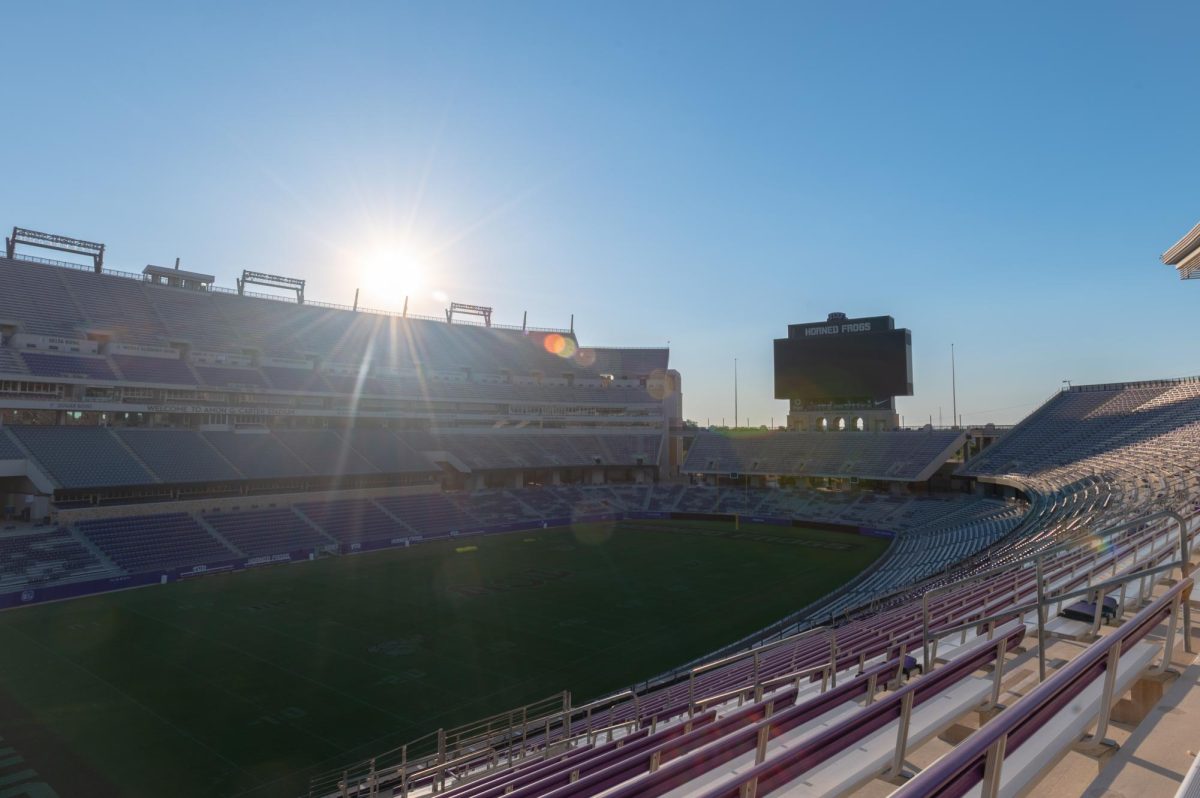Q: Residents want to know, how you are planning on improving their quality of life. Some are concerned candidates are a little too involved with political details and special interests, and the suburbs beat Fort Worth in things like sidewalks and sporting fields, what are you going to do to change this?
Betsy Price: I think we have to take a look at our infrastructure, our sidewalks, our sporting fields, the quality of life. Fort Worth is a big city with a small town attitude, and it’s the neighborhoods, the parks the fields that make , the sidewalks where your children can get out and play safely that make this city, we need to put a focus back on developing our neighborhoods, not just developing our –you know- our downtown, we have to get back more small businesses who are in the neighborhoods helping grow those areas. So you bring in small businesses and you have a focus on redeveloping those areas.
Dan Barrett: Well I’m not sure exactly the point of the question but, ah you know, I think that Fort Worth needs to adopt an attitude that recreation and green space and quality of life issues are as important and maybe perhaps even more important than some economic issues. For instance, in terms of the gas drilling in Fort Worth, I say all the time and – I believe, sincerely – that we can never ever compromise our health and safety in favor of economic gain, for any reason. And I think our health and safety involves other things other than just the air quality, which we certainly need to improve, and our water quality. But it also involves recreational opportunities and leisure activities. So we need to make sure that when we are setting our spending priorities that we give these things the weight that they deserve.
Jim Lane: Well first and foremost it always seems that libraries and parks are the first thing people want to cut when the budget gets tight. To me its just the opposite, I think those are the most important issues. Safety and your parks, your libraries. When I was on the council we started a new policy that all new developments had to have sidewalks put in. It is a progressive issue, it takes a commitment to quality of life issues, sidewalks are very important, trees are very important, parks of course are very very important, they maybe expensive but not everybody has a swimming pool in their back yard and not everybody can go to the country for an afternoon, so, they need to be there and they need to be close in all the neighborhoods and it’s a priority as far as development is concerned. WE need to make sure developers work with this issue of parks and quality streets. We have a real problem in Fort Worth with some of our streets I mean it’s a mess – a real mess.
Nicholas Zebrun: was not asked this question
Cathy Hirt: was not asked this question
Q: The city has attempted to improve Berry Street to include more businesses. What are your thoughts on the Berry Street Initiative?
Besty Price: I think it’s a great initiative. I was part of the original work when I was the president of Paschal’s PTA, its probably been ten years ago, as you know Paschal is at the end of Berry Street’s campus here, TCU’s campus. We worked very hard on that initiative (Berry Street Initiative). We worked on the beautification of the campus down there because it is a great segway into the university and into the zoological area, and then headed down into the cultural district we have to keep that Berry Street corridor strong. And improve the looks on it even more.
Dan Barrett: OH I think its great, and I most certainly would support it, I think that’s one of the areas where you can implement public-private partnerships that end up to be a win-win situations for both the city and the businesses. I think that certainly the areas of Berry Street that have been repaved with the brick intersections and the cross walks- all of that, are not only more attractive but they are also safer and I would support that any way that I could.
Jim Lane: Well I was there, you know, when we talked about the north main initiative; Berry, Lancaster. Berry street is one of the major streets in Fort Worth and you need to make sure there is zoning that is in place that doesn’t allow anything that’s undesirable to make its way in on Berry Street. It really is too close to the University and there are too many wonderful families out in this area. Of course TCU and Pascal and everything else is right there so it is a matter of management. It’s a matter of a city manager who understands the quality of life issues and makes sure that the council as a whole knows that these questions are popping up and making sure that there is a policy in place that doesn’t encourage businesses that don’t belong in these neighborhoods, you have to be really careful with that. If you come out on North Main you will see some sexually oriented businesses that have absolutely no business being there, in my opinion. Unfortunately they are grandfathers and they are still there.
Nicholas Zebrun: I think it’s wonderful. Just 10 years ago, if people remember, driving down Berry Street just past TCU’s campus was dangerous at best and kind of iffy at worst, so what they have done is extraordinary and I hope it continues all the way down to [Interstate] 35 and even over [Interstate] 35. A lot of what I’m running on is community activity and getting people more involved, and certainly Berry East is going to be an extraordinarily difficult thing but I think it has to be done. And I’m talking about all the surrounding areas, not just Berry, but I think that every area around TCU, as more and more students come and as more and more families come, we have to have facilities and businesses there that meet their demands and provide a safe, living city for them so that they do feel comfortable living in Fort Worth
Cathy Hirt: I think it’s moving along. I’d like to see it move faster. I’d like to see more student-friendly businesses, and I’d like for it to go further down Berry Street. I’d love for all of that to happen but it’s all part of the vision and the plan and it will just take some time. I think the most exciting thing about the Berry Street Initiative is that in 2013, the commuter rail is going to stop on Berry Street, and that is huge. That means that students can go from Berry Street to downtown, students can go from Berry Street to the North Side, students can go from Berry Street to the airport, and students can go from Berry Street to Dallas. So that will create a dynamic for Berry Street as well because when you have that commuter rail stop, businesses will also come because they know that more people will be getting off to come to TCU. So I think there is some huge momentum right now and some really exciting ideas that are coming to fruition for Fort Worth and for Berry Street.



